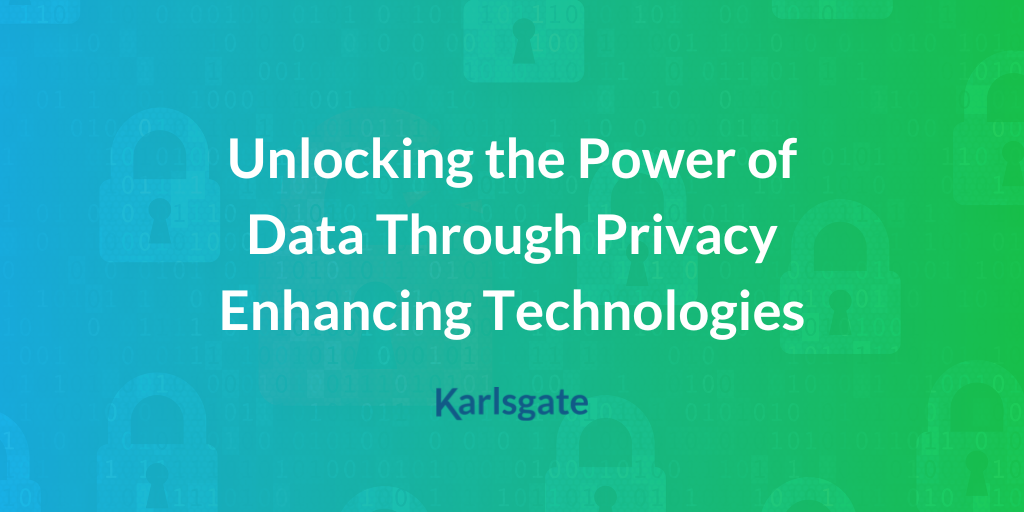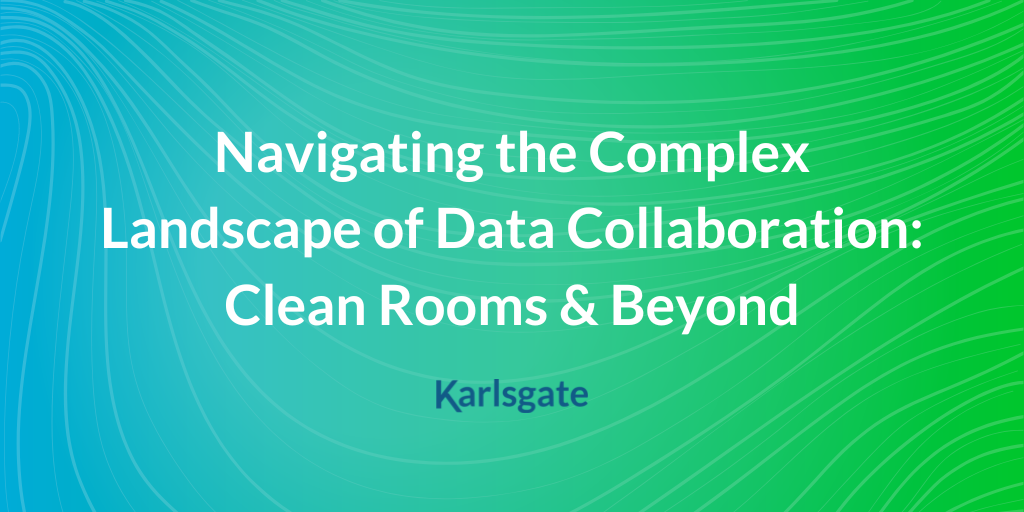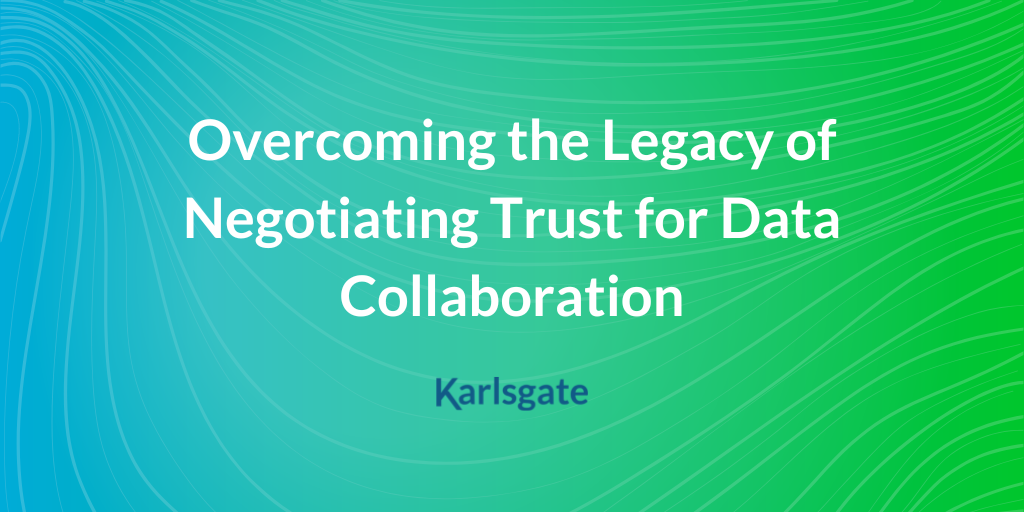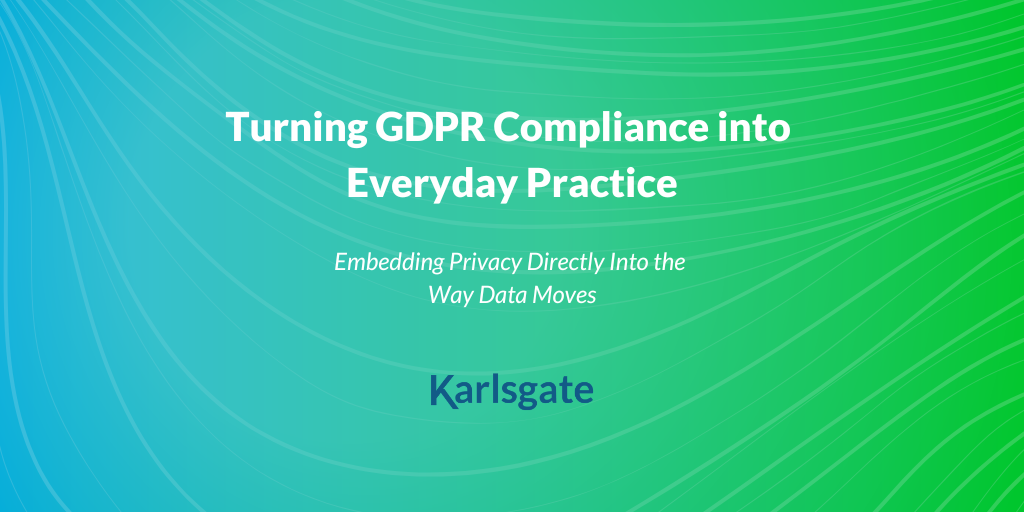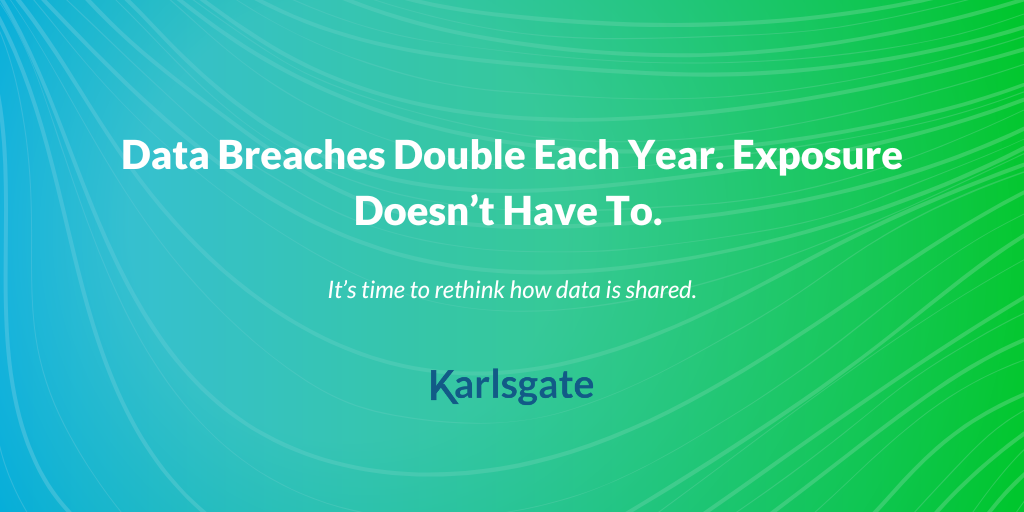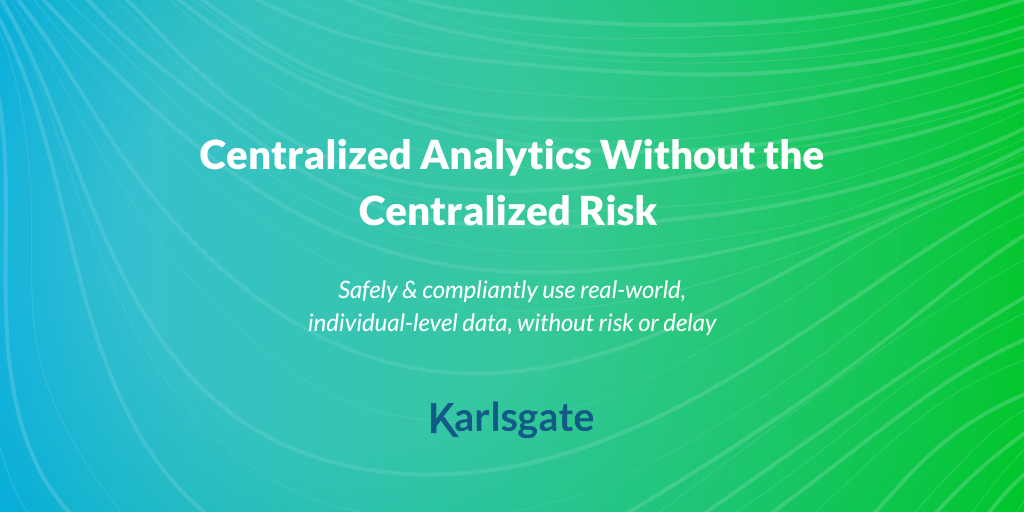In today’s digital world, organizations that work with sensitive data are at a critical crossroads. Breaches are rampant – just look at the recent cyber-attacks on Snowflake, Ascension, and Change...
The pharmaceutical research landscape is undergoing a seismic shift as we move from isolated data silos to collaborative innovation. With the average clinical trial generating up to three million data points [1], including patient records, lab results, and adverse event reports, the potential for secure data collaboration is vast and largely untapped. This wealth of information presents both an opportunity and a challenge for the industry, especially considering that the output of medical information is doubling every 73 days [2].
The dual imperative of maximizing data utility while scaling privacy and regulatory compliance has never been more pressing. In an era where regulated clinical trial data is the norm, comprehensive and innovative solutions are not just beneficial – they're essential. These solutions must not only protect patient privacy but also preserve the precision and utility of the data, striking a delicate balance that is crucial for meaningful scientific insights.
Current Challenges in Clinical Trial Data Collaboration
Despite the clear need for data sharing, current practices in pharmaceutical research are far from optimal. The industry faces significant hurdles in leveraging the full potential of clinical trial data, with an Oracle Health Sciences survey highlighting the extent of these challenges [3]. The survey revealed that 57% of clinical researchers believe data-related issues result in trial delays, underscoring the critical impact of effective data management on trial timelines and outcomes.
Common obstacles in secure data analysis for clinical trials include:
-
Data privacy and security concerns
-
Regulatory compliance complexities
-
Interoperability issues between different data systems
-
Scalability of data-sharing solutions
-
Balancing data de-identification with precision and utility
These challenges manifest in specific ways:
-
Secure data transfer between research sites and organizations remains a significant hurdle.
-
Multi-site trials often face potential legal and operational issues.
-
Integration gaps between different data platforms and systems hamper efficiency.
-
Privacy constraints limit data analysis flexibility.
-
Traditional de-identification processes may compromise data granularity and statistical power.
The impact of these challenges on trial efficiency, cost, and time-to-market for new drugs cannot be overstated. The same Oracle survey found that 81% of researchers cited data governance issues as the biggest challenge in meeting regulatory compliance. Moreover, the top data issues identified include duplicate or inconsistent data, data quality concerns, and problems with data integrity and traceability.
These obstacles can lead to prolonged trial durations, increased development costs, and delayed market entry for potentially life-saving treatments. The inability to effectively share and analyze data across sites and organizations, coupled with the potential loss of data precision due to traditional privacy-preserving measures, can result in missed opportunities for scientific insights, suboptimal patient recruitment strategies, and reduced ability to identify safety signals early in the development process.
Brian Mullin, CEO at Karlsgate, emphasizes this point: “Outdated data practices that rely on anonymization can actually exacerbate the very privacy concerns they were designed to prevent. The time-consuming and inaccurate processes for handling data often result in delays that cost lives. I strongly believe that the healthcare industry must adopt PETs to enable more precise, secure, and actionable data sharing. The time for half-measures is over – healthcare data must be precise, secure, and fully utilized if we are to unlock the potential of AI and other emerging technologies.”
Solutions and Technologies
To address these challenges, the industry is turning to advanced Privacy-Enhancing Technologies (PETs). Two notable approaches that exemplify the current state of innovation in this field include:
-
Automated Expert Determination and Data Remediation: This approach focuses on maximizing data utility while protecting privacy in clinical trial data, facilitating compliant data movement and collaboration across research sites. Integral is at the forefront of this method with technology that automates the complex process of de-identification and compliance certification for sensitive regulated data, setting a new standard in the industry. Their approach uses automation to assess re-identification risk and apply appropriate de-identification techniques that preserve as much data fidelity as possible, addressing the crucial balance between privacy and precision.
-
Protective Transformation Technology: This innovation secures clinical trial data at rest, in transit, and in use, enabling comprehensive data protection without exceptions. Karlsgate, an industry leader in data protection, has developed a technology that allows for secure data exchange without exposing the underlying sensitive data, addressing concerns about data privacy and security in collaborative environments.
These technologies promise significant improvements in healthcare data collaboration. For example, a multi-source data integration project in healthcare implemented by Karlsgate resulted in minimized data latency (eliminating a 90+ day lag in data freshness), reduced data integration time from 3+ months to less than 24 hours, and eliminated $80,000 in costs, all while maintaining stringent privacy standards.
As the field evolves, we can expect to see a combination of these and other emerging technologies being employed to create comprehensive, secure data collaboration ecosystems for clinical trials.
Benefits of Secure Data Collaboration
The advantages of advanced data collaboration extend far beyond operational efficiencies:
-
Accelerated drug discovery and development through collaborative research
-
Enhanced patient outcomes driven by comprehensive clinical data insights
-
Improved trial recruitment and diversity through ethical data sharing
-
First-mover advantage in clinical trial data network effects
-
Increased trust from patients and research partners through transparent data practices
-
Enhanced attractiveness for partnerships within the healthcare and research ecosystem
-
Faster innovation and reduced time-to-market in drug development
-
Greater control over sensitive clinical data in collaborative efforts
-
Preservation of data utility and precision while maintaining privacy
Shubh Sinha, CEO at Integral, highlights the importance of these benefits: “In the realm of clinical trials, data is the most valuable asset. However, its true potential can only be realized when we can share and analyze it securely. Our automated compliance, data sharing, and data monitoring technology is designed for this purpose, enabling pharmaceutical companies to collaborate and procure necessary regulated data quickly and compliantly. Our approach employs context-aware processing that understands the nuances of clinical data and how additional datasets in combination can encroach on privacy. This is the foundation for our ability to create tailored, fit-for-purpose compliant datasets.”
Leadership's Role in Cultivating a Data Collaboration Mindset
For pharmaceutical companies to fully leverage the power of data collaboration, leadership plays a pivotal role:
-
Shift organizational culture from data silos to secure sharing in clinical trials
-
Develop data literacy across research teams
-
Create cross-functional teams dedicated to clinical data collaboration
-
Architect data collaboration strategies that drive pharmaceutical innovation
-
Foster a culture of trust and transparency in research partnerships
Brian Mullin, CEO of Karlsgate underscores this point: "Leadership in the pharmaceutical industry faces the challenge of balancing legacy systems with cutting-edge privacy solutions. While some advocate for radical shifts or complex technologies, I believe in a more adaptable approach: leveraging Privacy-Enhancing Technologies (PETs) to transform how we manage, share, and secure data. This approach offers a scalable, practical solution that upholds rigorous privacy standards while addressing the urgent need for data utility—without unnecessary complications. By embracing this strategy, secure, high-quality data becomes the foundation for better care."
As leadership cultivates this data collaboration mindset, they pave the way for future innovations that will reshape the clinical trial landscape. By embracing change and fostering a culture of innovation, pharmaceutical leaders can position their organizations at the forefront of emerging trends in data collaboration.
The Future of Clinical Trial Data Collaboration
As we look toward the horizon of clinical trial innovation, several key trends are poised to reshape the landscape of data collaboration in pharmaceutical research:
-
Emergence of Clinical Data Collaboration Platforms and Marketplaces We anticipate the rise of sophisticated, secure platforms facilitating seamless data sharing across multiple stakeholders. These will enable real-time data exchange, standardized formats, and potentially create 'data marketplaces' for trial data, accelerating scientific discovery.
-
AI-Driven Orchestration of Complex Clinical Data Ecosystems Artificial Intelligence will play a vital role in managing vast clinical datasets. Advanced algorithms will automate data processes, identify patterns across diverse sources, and optimize trial design and patient recruitment strategies.
-
Evolving Regulatory Frameworks Supporting Collaborative Innovation Regulatory bodies are likely to adapt, creating new guidelines that balance innovation with patient protection. This may include standards for secure, compliant data sharing in multi-sponsor trials and harmonization of data privacy regulations across regions.
-
Blockchain for Enhanced Data Integrity and Traceability Blockchain technology could revolutionize how we ensure the integrity of clinical trial data, offering immutable record-keeping.
-
Patient-Centric Data Ownership and Integration of Real-World Data We may see a shift towards greater patient control over health data, with personal data wallets and dynamic consent models. Simultaneously, the integration of real-world data with clinical trials could lead to synthetic control arms and adaptive licensing models.
As these trends converge, we can anticipate faster, more efficient, and more inclusive clinical trials. The key to realizing this potential lies in the development and adoption of secure, ethical, and interoperable data collaboration technologies. Companies at the forefront of these innovations will play a crucial role in shaping this future, driving the pharmaceutical industry toward a new era of data-driven discovery and patient-centric care.
Getting Started with Secure Data Collaboration
For organizations looking to implement secure data collaboration in their clinical trials, consider these key steps:
-
Assess your current data landscape: Understand what data you have, where it's stored, and how it's currently shared.
-
Identify collaboration bottlenecks: Pinpoint where data sharing is causing delays or inefficiencies in your trials.
-
Evaluate technology solutions: Research PETs that align with your specific needs and compliance requirements, prioritizing solutions that offer granular control over de-identification processes, allowing you to balance privacy and data utility effectively.
-
Start small: Begin with a pilot project to test and refine your approach before scaling.
-
Invest in training: Ensure your team understands both the technology and the importance of secure collaboration.
-
Develop clear policies: Create guidelines for data sharing that balance utility with privacy and compliance.
Conclusion
The pharmaceutical industry is on the cusp of a data-driven revolution. By embracing secure data collaboration technologies, companies can accelerate drug development, reduce costs, and ultimately save more lives. This shift is not just about competitive advantage; it's about fulfilling the industry's core mission of improving human health. The challenges are significant, but the potential rewards – faster discoveries, more targeted therapies, and better patient outcomes – are immense. As we move forward, the ability to utilize collaborative data securely and effectively will define the leaders in pharmaceutical innovation.
About Karlsgate
For executive leaders concerned about balancing data security with the demand for data across all facets of the business, Karlsgate offers a robust, easy-to-implement solution. Protect your data from risks and breaches while seamlessly accessing it for critical initiatives. Secure and maximize your data's potential with Karlsgate. https://karlsgate.com/
About Integral
Integral enables companies to safely leverage sensitive regulated data at unprecedented speeds by automating the data de-identification and compliance certification process, allowing our customers to stay agile and iteratively drive outcomes. www.useintegral.com
[2] https://www.ncbi.nlm.nih.gov/pmc/articles/PMC10594907/
[3] https://www.oracle.com/corporate/pressrelease/survey-drug-development-092418.html

